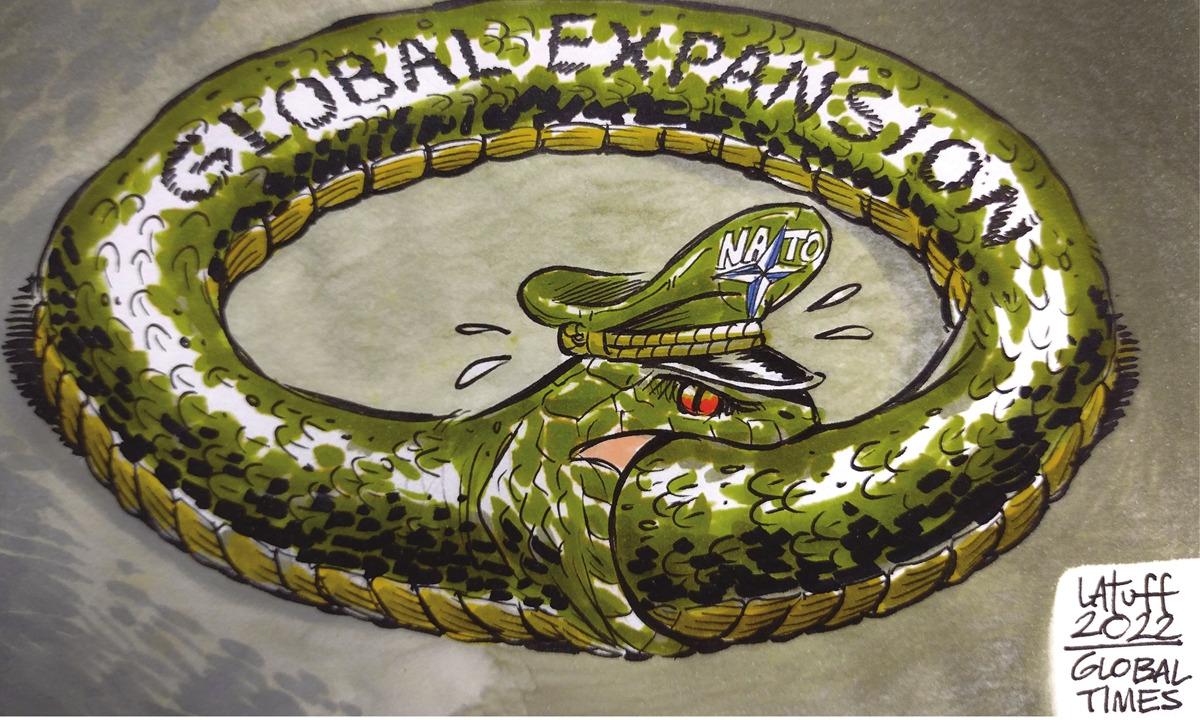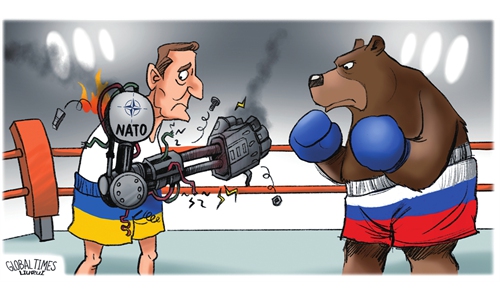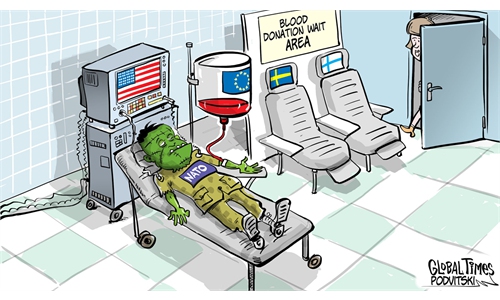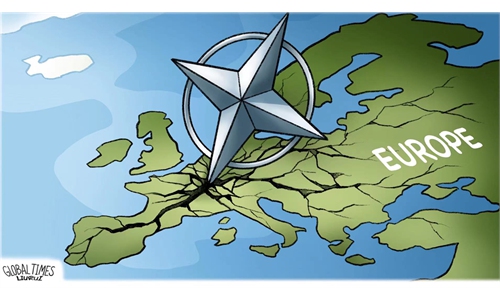
Illustration: Carlos Latuff
Editor's Note:NATO, which is constantly looking for imaginary enemies and justifying its existence by inciting confrontation, is about to hold a summit, and it also plans to extend its tentacles to the Asia-Pacific region. Behind its aggressive narrative, contradictions and divisions within NATO have become increasingly prominent. The Russia-Ukraine conflict is not going according to NATO's playbook. This series of articles will provide some clues regarding NATO's predicament. This is the fourth piece.
Despite all the investment in the conflict, NATO is not able to stop Russia from fulfilling the goals of its military operation in Ukraine. That gives Moscow the possibility to regulate the intensity of the military activities on the ground accordingly to Russia's own planning and strategic considerations. Very soon, the US and its allies will have to face a choice between the different ways of recognizing Russia's legitimate security considerations in Eastern Europe.
The reason for this dilemma is simple - NATO, governed by the US, has long ago overstretched its actual capabilities which cannot be matched by its strength.
In recent months, NATO allies have sent colossal financial resources to the Ukrainian government and imposed the most severe economic sanctions on Russia ever used in international politics. The number of weapons that were transferred to Kiev is enough to equip the army of a small European or Asian country. There are also several thousand mercenaries from NATO countries in Ukraine - all of them trained fighters with combat experience. Some European NATO allies admit that they have already exhausted all stocks of their military equipment available. Delivering new supplies to Kiev will need a significant production effort that will take months or even years.
Sometimes one even gets the impression that Ukraine is becoming for NATO what the war in Afghanistan (1979-89) became for the Soviet Union - a huge waste of resources for the sake of the goal which is both incomprehensible and far from the interests of citizens. Ordinary people in Western Europe and in the US fully understand that Russia is not threatening their home countries or essential interests. And we can expect that in the fall, the people of the NATO countries will begin to ask their governments questions - Why should they have to further endure economic difficulties?
So, NATO's failure does not only stay on the battlefield - it seems an entire US post-Cold War strategy is doomed to collapse. And the US will need to adjust its own vision of global order with that of the other members of the international community.
The expansion of NATO after the end of the Cold War looked like an easy and funny game. Russia was willing to cooperate with the West and weakened by the painful economic and societal reforms during the 1990s. The aggressive NATO expansion was the result of excessive self-confidence by the US and the desire to seize as much territory as possible after the disintegration of the Soviet Union. Instead of using the opportunity for the joint international effort to establish a just world order, the West has tried to maximize its advantages. As we see it today - at the expense of global stability and its own credibility as a security provider.
Even by the early 1990s, many analysts argued that NATO's expansion had not taken into consideration the strategic implications for the bloc itself. Many responsible thinkers in the US and Europe cautioned the necessity of such a decision, warning that it will not only antagonize Russia but also put the US' own reliability at risk if Moscow challenges NATO on the ground.
However, these warnings have not been heard by the subsequent US administrations. Basically, the only possible scenario was reliant on the ever-lasting US global dominance and inability of the others to confront NATO with anything but words. It worked for several decades - all NATO military operations after the Cold War have been directed against much weaker and isolated countries such as the former Yugoslavia (1999), Afghanistan (2001) and Libya (2011).
But present-day events have confirmed that it was unrealistic from the very beginning. Even though NATO will now increase its military presence in Eastern Europe, it still by all estimates will not be enough to represent a conventional challenge for Russia. European NATO countries such as France, Germany and Italy are already calling for the peace-settlement in Ukraine. They have neither the desire nor resources to increase the level of engagement in the ongoing conflict.
So, recklessly putting ambitions before the rational calculation, the US places itself into a position of further losing its credibility as a leader of the Western community. This is not to speak about the internal US troubles ranging from the substantial COVID consequences to consumer prices rise and race problems.
The author is Moscow-based Valdai Club program director. opinion@globaltimes.com.cn



